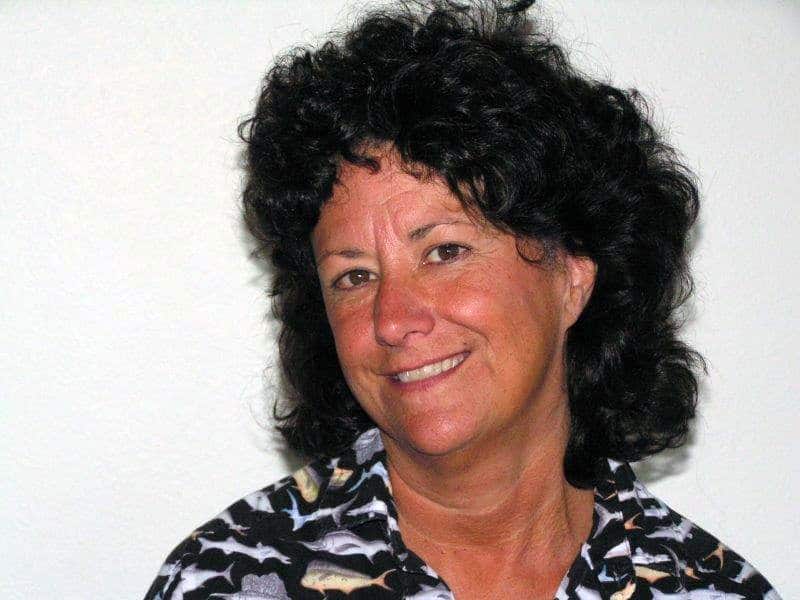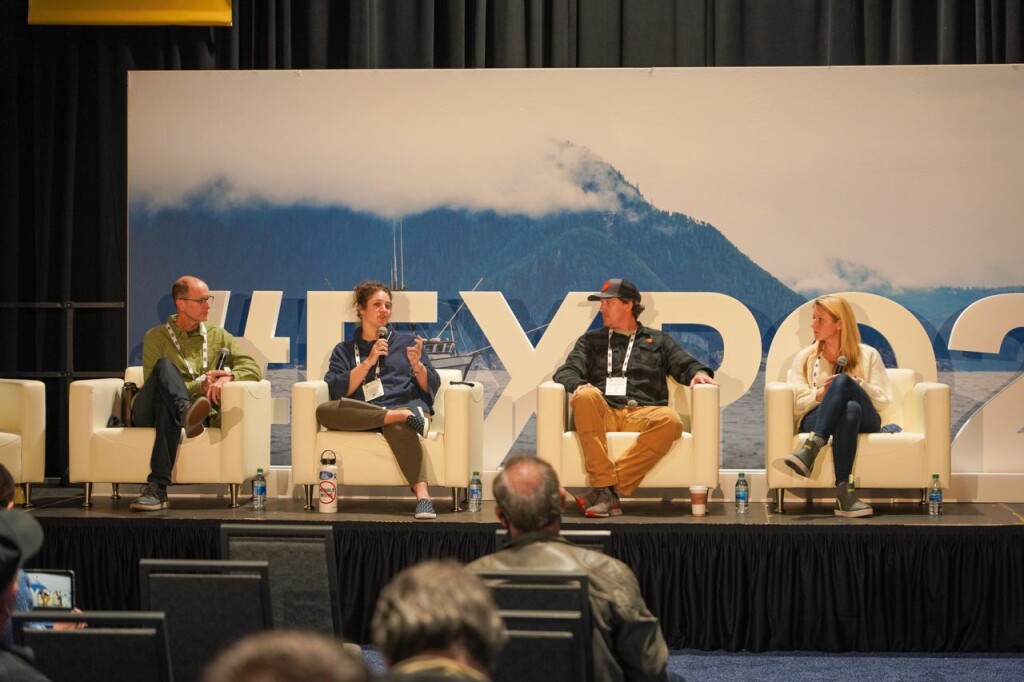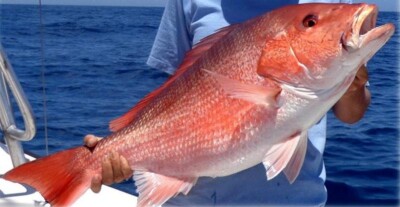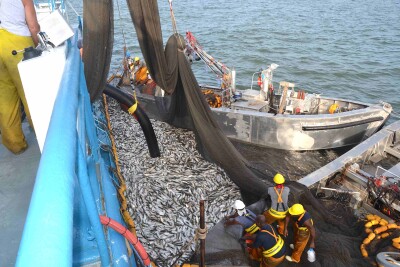More than a million pounds of old fishing nets and lines from Alaska have made it to recycling markets so far, where they are remade into plastic pellets and fibers.
The milestone was reached with a recent haul of nets from Dutch Harbor, and more are already adding to the total. Shipping vans filled with old gear collected at Haines were offloaded in Seattle in mid-November, and another container from Cordova is on its way.
Dutch Harbor was the first to sign on four years ago with Net Your Problem, a small Seattle-based company that jumpstarted fishing gear recycling in Alaska and facilitates its collection and transport, primarily to Europe. The Net Your Problem team has partnered with the city and the region’s Qawalangin tribe to sort through piles of old nets and lines dumped at the landfill and do continuing outreach to boat owners to encourage them to recycle their gear.
Similar partnerships have formed in other Alaska coastal communities to start and/or sustain a recycling effort. At Cordova, the Copper River Watershed Project collected and prepped roughly 16,000 pounds of gillnets for recycling so far, said Net Your Problem Founder Nicole Baker-Loke, a former Alaska fisheries observer and current research associate at Washington State University, who also spoke on a Pacific Marine Expo panel on recycling gear.
“Cordova is a jewel and we’ve been working with them for two years,” she said, adding that Grundens, maker of outerwear and foul-weather gear for mariners, is using regenerated nylon fabric from Cordova’s recycled fishing nets in several of its clothing lines.
The Haines Friends of Recycling group also has been collecting nets and lines for two years and has so far gone through the arduous task of making sure roughly 8,000 pounds were compliant for recycling.
Fishing gear is made with a mix of plastics and other materials that must be stripped off to be accepted by recyclers, Baker-Loke explained. It’s especially problematic with trawl nets that are collected for recycling at Kodiak.
“One of the things that has really changed for us this year is new regulations restricting the export of mixed plastic waste. It is now very difficult to send multiple types of plastic in a same container to a different country. The polyethylene, polyester, nylon, we need to separate them into their different components before we can ship them out for recycling,” she said. “We have recently signed a new lease for a bigger warehouse in Seattle that will allow us to process the nets there before we send them out.”
Homer is in Net Your Problem’s lineup for fishing gear recycling, Baker-Loke said, and Naknek will begin a program next summer. Her small team also hopes to restart gear recycling in Dillingham and has connected with the Alaska Tribal Conference on Environmental Management to make more coastal regions aware of the opportunity. Net Your Problem was recently accepted as a vendor in the Backhaul Alaska program, a statewide logistical support system that removes hazardous wastes, old electronics and other items from remote communities.
“If you are one of the participating communities and there is space in the containers that are being sent out through the backhaul program, you only need to pay the recycling fee once it gets to Seattle. You don’t need to pay for any of the transportation, because that is covered by the backhaul program,” Baker-Loke explained. She also took the opportunity to thank Sen. Lisa Murkowski for her help with the statewide effort when they had the chance to meet on the show floor at Pacific Marine Expo. “That’s another option for communities that may not be participating with NYP yet but are already plugged into this backhaul network.”
Net Your Problem also has launched recycling programs on the East and West coasts with a goal of offering the option to all of the major fishing ports in the country.
“I think we’re on our way there,” Baker-Loke said, “and we will work with any interested communities.”







